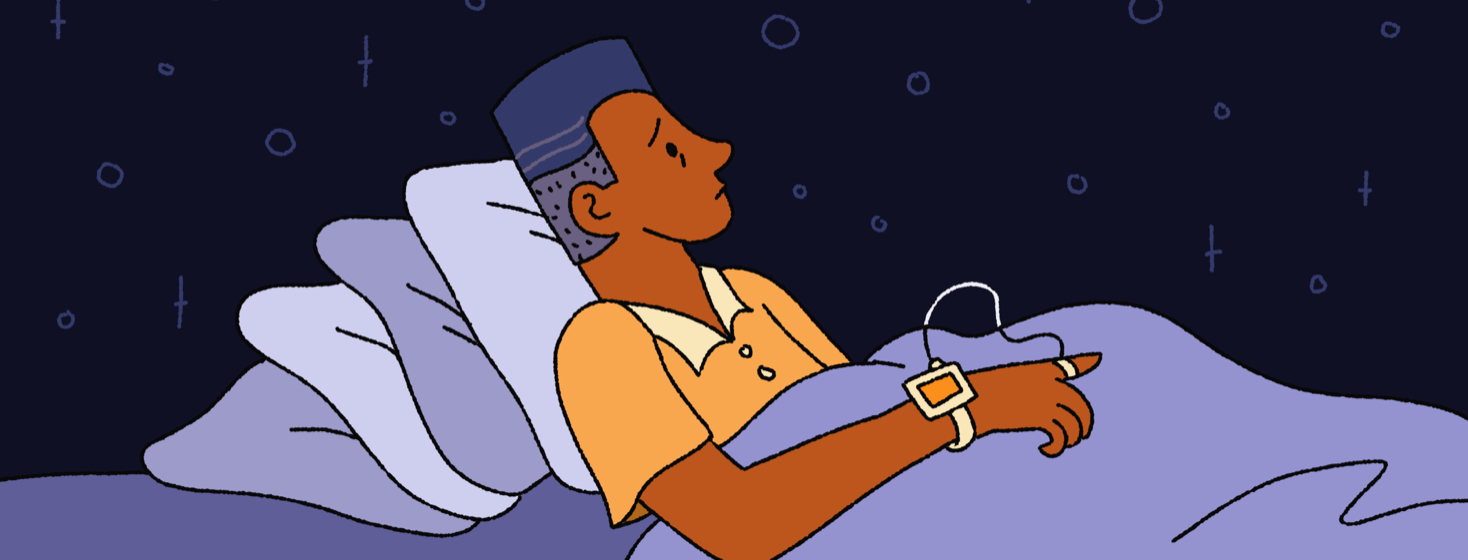Can I Just Get Some Sleep?
I don't know about you, but I'm tired.
It could be the whole college student thing or maybe living with chronic illnesses, but I could use some good, solid sleep.
Asthma and my notorious insomnia
The joke's on me; I've never been a good sleeper. I didn't even take naps as a baby! Asthma has definitely thrown a wrench further into catching my zzzs thanks to its symptoms. My notorious insomnia was further amplified when I landed on chronic prednisone over 2 years ago.
2:30 AM became my most productive time of the day (night?), and I've been known to submit many an assignment long after I should have gone to sleep and long before I should be awake.
My lungs work overtime at night
I generally try to avoid getting the oh-so-necessary shuteye. Why? I never get to sleep alone!
My lungs already have a very lackluster performance during the day, but they really outdo themselves overnight. As a result, I never get to just flop down on my once-singular pillow and drift off to dreamland.
My nighttime breathing support
A bed wedge and 3 pillows
Lying flat on my back is not an option for me as it dramatically increases symptoms and pretty much guarantees a wheezy night. I've tried numerous different combinations and thus far 1 wedge and 3 strategically placed pillows has been the kindest to my lungs (and shoulder!).
My overnight O2
Though sleep studies have ruled out sleep apnea, I do have significant nocturnal hypoxemia and it behooves me to wear supplemental oxygen. My very loud, and quite toasty, oxygen concentrator pulls up right next to my bed. I put on my nasal cannula then try to secure the cannula with countless pieces of tape. Though I don't sleep well (or a lot) I am quite a temperamental sleeper and my cannula tends to spend a good portion of the night oxygenating the floor. If anyone has suggestions, please comment below!
A pulse-oximetry device
Overnight desaturations are not fun, especially when I quite often lose my supplemental oxygen. In comes my pulse oximeter. This oximeter is meant for continuous monitoring, with a bracelet and a finger sensor (that I also have to tape in place!). Mine is Bluetooth and lets me check the report on my phone in the morning. The best – or worst – part of this oximeter is the alarms you can set. My doctor instructed me what to set the SpO2 lower limit at and if I drop below that number, this lovely device will alert me. It accomplishes this by vibrating continuously until my oxygen saturation improves and will even make my phone alarm. This seems like a good way to get no sleep if you frequently de-sat (raising my hand high here!), but it gives me peace of mind and comfort going to bed. If my oxygen is lower than it should be, at least I'll know!
I would not have it any other way
As annoying as it is to get myself all propped up and hooked up before I can even attempt to sleep, my lungs and I wouldn't have it any other way anymore. Plus, it's exceptionally stylish.
Do you have trouble sleeping? Do you have any tips for better or more comfortable sleep? Share with us in the comments below!

Join the conversation